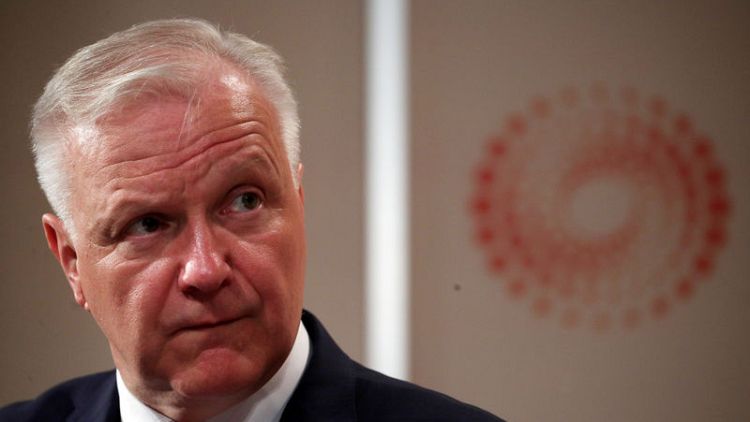HELSINKI (Reuters) - The European Central Bank is ready to adjust all of its tools to lift inflation but also needs to study a range of deeper challenges that could alter the course of its policy, Finnish central bank chief Olli Rehn said on Monday.
With growth and inflation both slowing, the ECB has said that more stimulus may be needed and markets are already expecting a rate cut to new record lows. Some analysts even predict a restart of asset purchases, widely known as quantitative easing.
"The Governing Council stands ready to adjust all of its instruments, as appropriate, so that inflation continues to converge towards our inflation aim in a sustained manner," Rehn, a potential successor to ECB chief Mario Draghi, told a conference in Helsinki.
He also said that inflation may fluctuate in the short term on either side of the ECB's target, reinforcing recent comments from Draghi that the ECB could let inflation rise above target after a period of excessively low price growth.
But Rehn, who has long advocated a review of the ECB's policy strategy, also argued that central banks now operate in a new environment, which requires a deeper assessment, since broader changes may be affecting how inflation behaves.
"The ECB – much like other central banks – operates in a new environment where long-run trends, such as population aging, lower long-term interest rates and climate change have become key policy issues," Rehn said.
Making the case for a policy review, Rehn said the policy environment has changed significantly since the last such assessment and the ECB's own tools are also quite different as policymakers now rely primarily on unconventional assets.
(Reporting by Balazs Koranyi; Editing by Susan Fenton)



